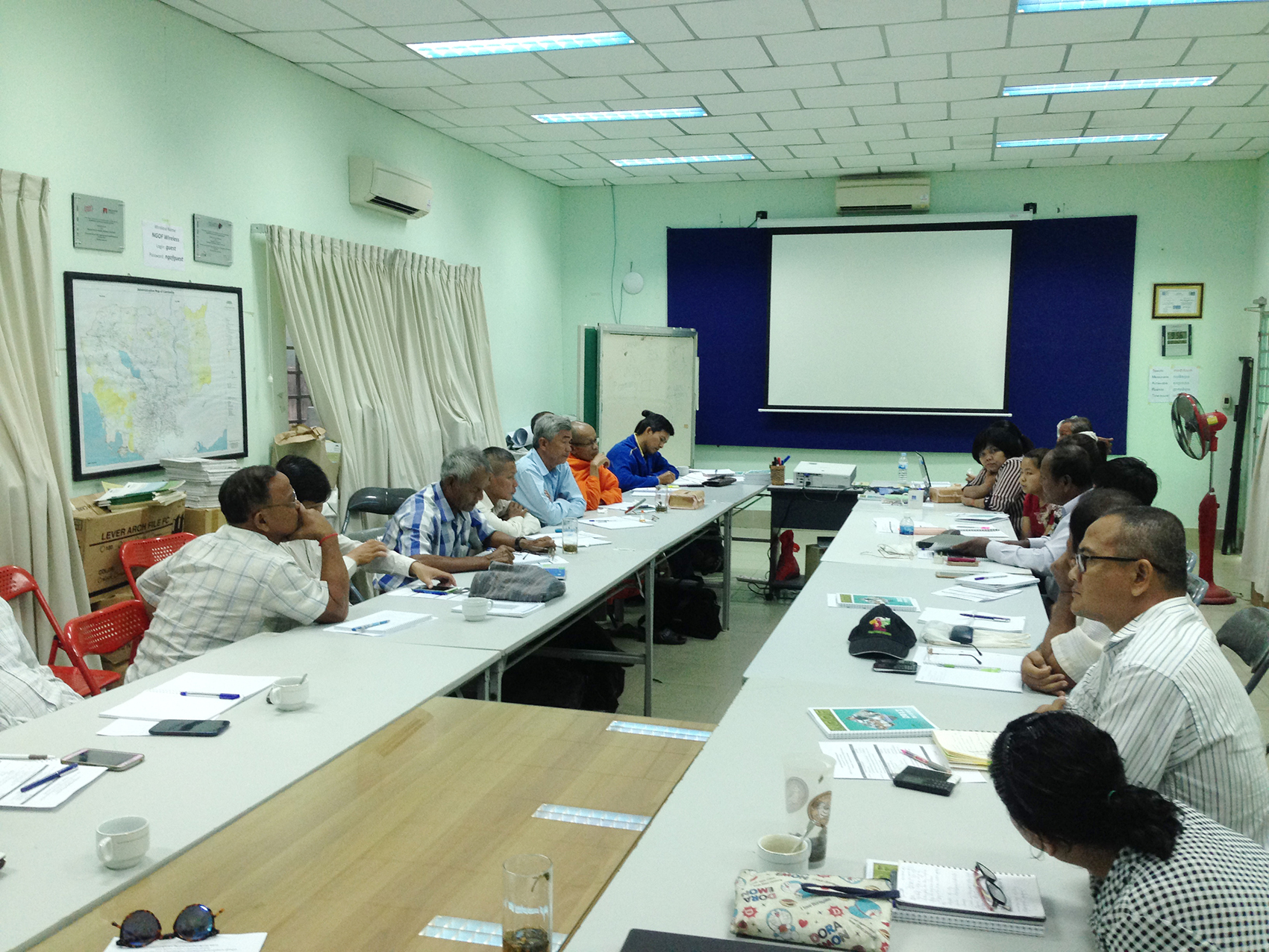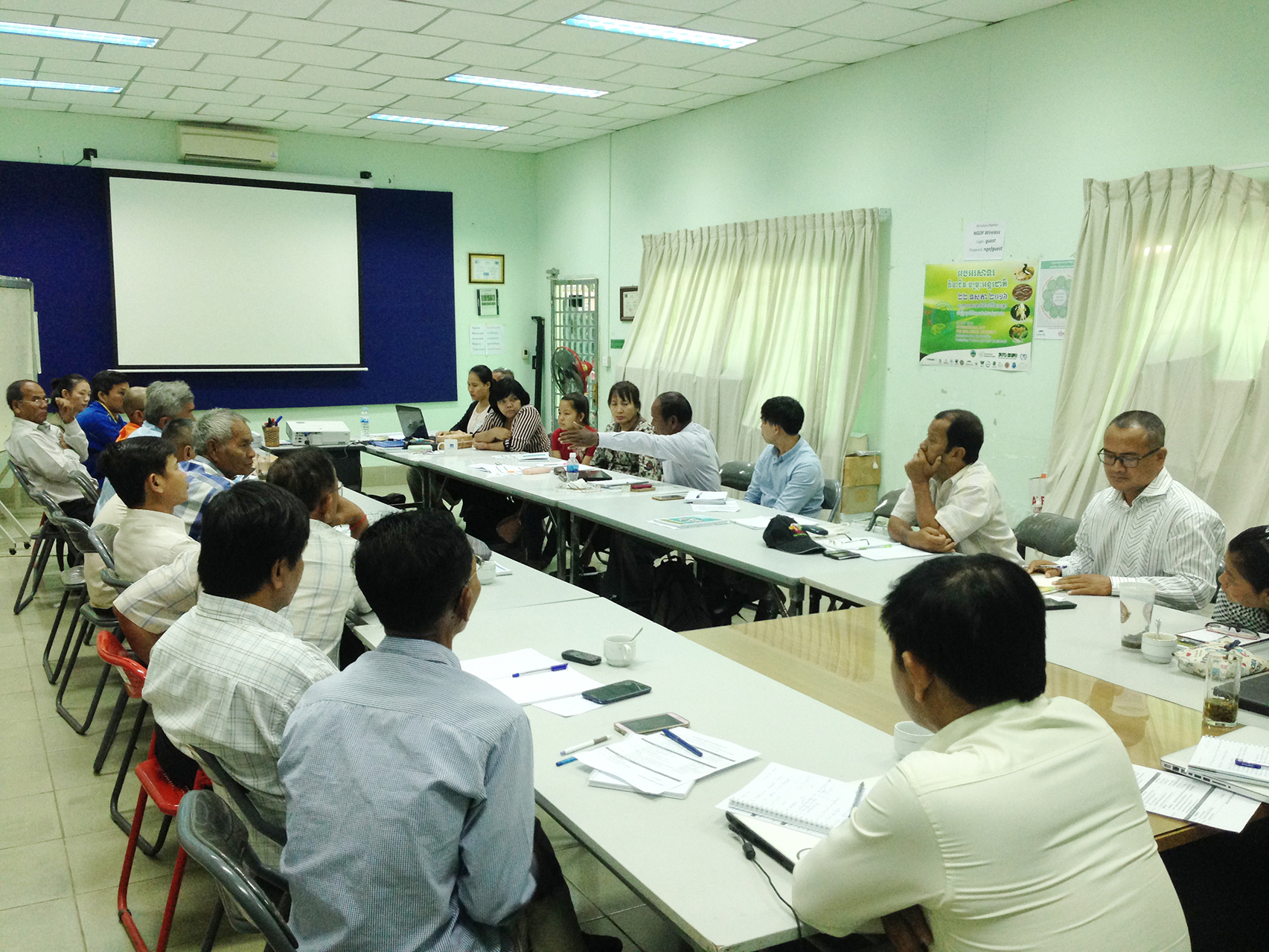
On 30th March 2017, first Quarterly Meeting of Development of Food Security and Safety in Cambodia (NDF-C) network was organized at the NGO Forum on Cambodia’s office. The meeting was hosted by the Agriculture Policy Monitoring Project coordinator of the NGO Forum on Cambodia. 24 participants (6 women), who represented both national and international NGOs, attended the meeting
During this first meeting, the NDF-C members came together to share key achievements, good practices and key challenges and discuss approaches to developing good cooperation for the implementation of an advocacy strategy plan in 2017.
The NDF-C members were invited to this meeting, so that they could share information of good practices and news on agriculture advocacy activities, raise their concerns, seek solutions for agriculture issues and discuss the challenges of working at a grassroots level, especially with regard to government policy implementation related to agriculture policies.
In this first quarterly NDF-C members shared experiences and issues in their provinces with all network members. The following issues were discussed:
- Low price/no market for local farming products: Many members reported that farmers harvested products tend to yield a very low price, which means that farmers lose benefits from their products. The consequences, farmers increasingly borrow capital from the bank in order to grow their crops, so many are now indebted to the bank. When they get a low price for their product, their livelihoods are threatened. Sometimes, even if the farmers have products to sell, there is no market for it. Therefore, many people decided to leave their house or province to earn a more stable source of income to support their family and pay off debts to the bank. Moreover, market competition, especially with Vietnam, is a main issue for farmers.
- High usage of agricultural chemicals and fertilizers: Observationally farmers have used the chemicals and fertilizers for their crops or vegetables to compete with the Vietnamese market. The crops or vegetables from Vietnam have a lower price than in Cambodia, which makes competition very difficult for farmers. The farmers need to pay a lot of capital for their crops and vegetables. When Vietnamese farmers use chemicals and fertilizers, the standard and quality of vegetables and crops will be impaired. The crops and vegetables from Vietnam may be cheaper than in Cambodia, but they don’t have the same quality and safety.
- Lack of water for agriculture: lack of water is still an issue in agriculture, as the farmers don’t have enough water to run their farms. For example, in the Battambang province, farmers don’t have enough water to grow crops and rice and the changing weather makes it even more difficult to farm the land.
- Climate change: the weather is changing drastically. It rains in the dry season instead of the rainy season, which makes it difficult to grow crops. Sometimes there is not enough water and sometimes there is too much water, as excessive rain destroys the farmers’ crops and vegetables.
To deal with these target areas, the NDF-C network members suggested solving their issues and challenges through the following approaches:
- Continue cooperation with the Rural Development Bank, the Ministry of Agriculture Forestry and Fisheries and the Department of Agriculture to support funds and rice kiln drying to farmers.
- Create agriculture community for export of products and purify rice that has a high price. This needs cooperation with the Department of Agriculture.
- Encourage NDF-C members to cooperate with other networks and the Ministry of Commerce to improve marketing and value chain for competition with other countries.
 So far, there are key concerns have been discussed and identified such as water management, capital, market and technology for agriculture sector. Those are from recommendations and suggestion of Farmer Forum, CSOs dialogue with Ministry of Agriculture Forestry and Fisheries and the Department of Agriculture and NDF-C members. In order to deal these concerns, the meeting still suggests NDF-C as well as NGOF should enhance the collaboration and engagement among his members, private sector and government especially more concretely implement the NDF-C action plan.
So far, there are key concerns have been discussed and identified such as water management, capital, market and technology for agriculture sector. Those are from recommendations and suggestion of Farmer Forum, CSOs dialogue with Ministry of Agriculture Forestry and Fisheries and the Department of Agriculture and NDF-C members. In order to deal these concerns, the meeting still suggests NDF-C as well as NGOF should enhance the collaboration and engagement among his members, private sector and government especially more concretely implement the NDF-C action plan.